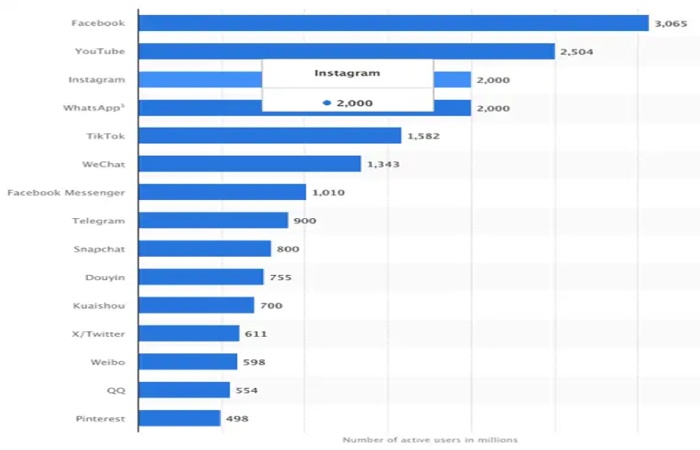Imagine spending as little as 6 hours a week to increase your business’s recognition, traffic, and sales with minimal to no cost. Sounds incredible, right? Right, it’s not just a wish—it’s the social media marketing reality.
Not surprisingly, indeed, up to 90% of marketers report using social media successfully to create large amounts of exposure for the companies that they market, but that’s just one of its merits. Social networks are now a significant component of all marketing plans and the advantages are such that any business that is not utilizing this low-cost resource is missing out on a superior chance.
Table of Contents
The key strategies to maximize social media potential
1. Increased brand awareness
Social media is an economical means of increasing a brand’s visibility. Through the interaction with users and facilitation of sharing, it can be easy to scale up your audience with little promotion boosting your reputation and reaching a further audience.
2. More inbound traffic
Social media directs new traffic to your website, reaching diverse demographics across platforms. This, in turn, attracts new customers in addition to your current customer base, which increases your audience reach.
3. Improved search engine rankings
Social media activity drives SEO—specifically, the creation of social signals (e.g., likes, shares, comments). Regular engagement and high-quality content lead to better search engine placements and increased traffic.
4. Higher conversion rates
Higher awareness on social media can translate into a higher conversion rate. Tailoring the interaction to the individual promotes trust, leading consumers to choose your brand, and whereas social media has a better lead-to-close ratio than traditional marketing.
5. Better customer satisfaction
Through social media, direct communication with clients can be established and the practice of providing quality service can be demonstrated. Personalized responses can enhance satisfaction and loyalty.
6. Improved brand loyalty
Social media interactions with customers help build brand loyalty, particularly for younger audiences, due to the importance attached to communication by such audiences. Consistent interaction builds a dedicated customer base.
7. More brand authority
Frequent engagement on social media enhances your brand’s credibility. Open communication and positive customer interactions contribute to authority in your industry.
8. Cost-effective
Social media marketing is cheap, having free profile creation and cheap paid advertising. It is suitable for small businesses and has a high return on investment (ROI) with respect to conventional approaches.
9. Gain marketplace insights
Social media provides direct feedback on customer preferences and behaviors, helping refine your marketing strategy. Analytics tools track metrics like engagement and conversions.
10. Thought leadership
Posting valuable content on social media positions your brand as an industry leader. Sharing knowledge and engaging in discussions builds your reputation as a trusted voice.
Key social media platforms for business success
Facebook: The platform of choice for businesses of any size still ubiquitously the 2.8 billion monthly active Facebook users. It offers robust advertising tools and analytics to help you reach targeted audiences.
Instagram: Instagram, owned by Facebook, is perfect for businesses focusing on visual content. With over 1 billion users, Instagram is ideal for engaging with a younger audience. Instagram statistics show that a significant portion of its user base actively engages with branded content, making it a powerful tool for marketing. Its user-friendly interface and powerful storytelling features allow businesses to build a visually appealing brand presence.

X (formerly Twitter): As a platform for real-time dialogue and emerging trends, X is excellent for participating in dialogue and offering timely customer support.
LinkedIn: LinkedIn remains the platform of preference for B2B marketing and professional networking. It’s ideal for connecting with decision-makers and industry professionals.
TikTok: TikTok is the platform of choice for engaging Gen Z and younger generations. For businesses, it is a short-form video format that provides an avenue for creativity and reaching out to a new generation.
Pinterest: Pinterest is particularly well suited for businesses in the fashion, food, home décor, and lifestyle industries. It is a visual platform with high traffic and sales. If you’re wondering how to use Pinterest for business, this platform is invaluable for driving traffic to your website through visually appealing pins.
By creating visually compelling content and utilizing the platform’s search functionality, businesses can showcase their products or services to users actively seeking inspiration. The platform also supports business features like promoted pins and analytics, making it easy to track and optimize marketing efforts.
Effective social media marketing strategies
1. Define clear goals
It is crucial to set focused, quantifiable objectives for the social media strategy one has planned. From establishing brand awareness to creating leads, setting out clear aims will help steer your campaign.
2. Know your audience
Knowing the target audience is itself a key to the development of proper content and interaction. Employ market research to understand their age, activities, and internet actions.
3. Create engaging content
Content is key to keeping your audience engaged. Employ a variety of media forms like videos, infographics, and blog posts to maintain novelty and engagement.
4. Leverage influencer partnerships
Partner with influencers with a brand voice that matches your brand voice to increase your reach and gain trust.
5. Utilize analytics
Monitor your social media performance regularly to identify trends and make data-driven decisions.
6. Engage with your audience
Social media is a dialogue street—actively communicate with your audience to foster close relationships.
Conclusion
Social media marketing is a useful instrument for companies that would like to increase brand awareness, to generate traffic and sales. Through the proper use of social platforms, corporations can reach a wider market, gain better customer satisfaction, and generate lasting loyalty. Whether you’re just starting or looking to refine your existing social media strategy, the opportunities are limitless.
Now that you understand the numerous benefits of social media marketing, it’s time to start integrating these strategies into your marketing efforts. The key is to stay consistent, engage authentically, and continually measure and adjust your approach. Social media marketing is continuous work, so just do one step today!

